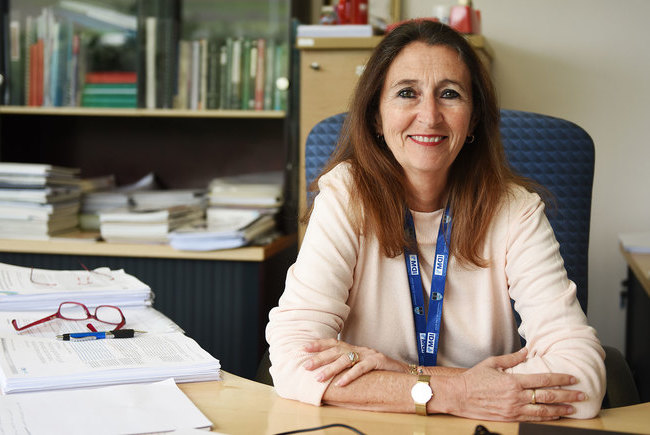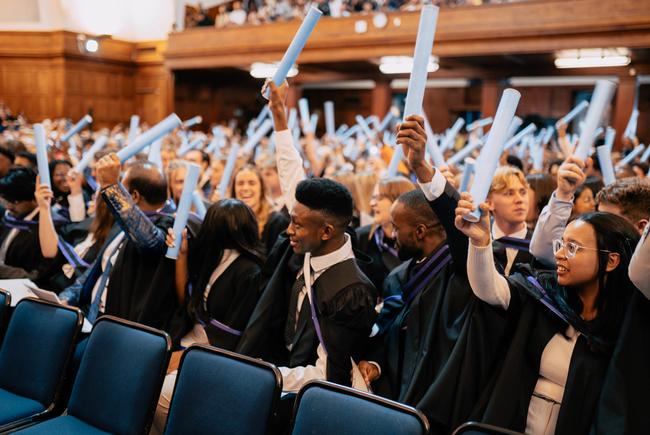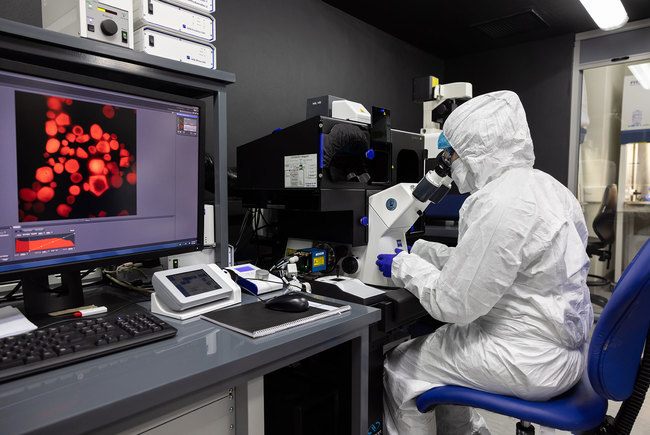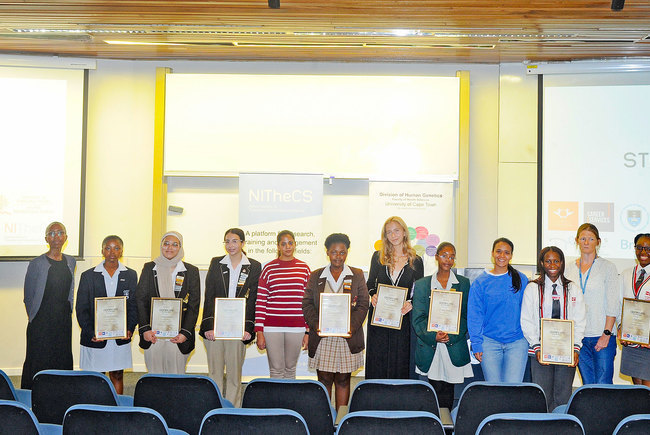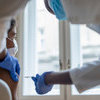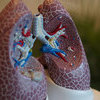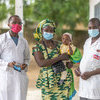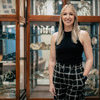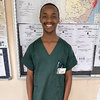Med student’s elective abroad ‘memorable, magical, meaningful’
15 February 2024 | Story Niémah Davids. Photo Pexels. Read time 7 min.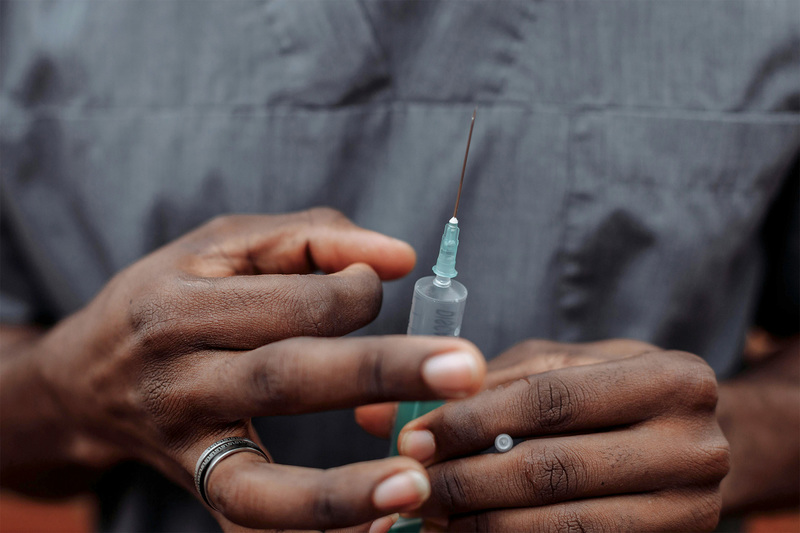
When Moses Malebana boarded his flight to Austria, he was not expecting his elective abroad to be a walk in the park. He was prepared for hard work and long hours, but admittedly, not quite as prepared for the enormous language barrier that awaited him at the Medical University of Graz (MUG).
Malebana is a sixth-year Bachelor of Medicine and Surgery (MBChB) student at the University of Cape Town (UCT), and his stellar academic record paved the way for an elective abroad. He was based at a teaching hospital affiliated to MUG in Austria and spent most of his time in the oncology unit, where he straddled clinical practice and research disciplines. The elective kicked off in a snow-white Graz in December 2023 and concluded in January 2024.
“During the early days, I found it very difficult to adapt because of the language barrier. Everyone only speaks German – doctors, nurses, the cafeteria staff and locals on the street. So, it was difficult to buy a cup of coffee, read a sign on a bathroom wall or ask for directions,” he said. “This obviously meant that the language barrier applied to communicating with patients as well – their folders, lab and imaging results and prescriptions are all in German, even the names of some medications were in German. So, it was very, very challenging. But we move.”
It’s been two weeks since he arrived back on home soil, and after recharging his batteries, UCT News caught up with Malebana for more on his experience at MUG.
Niémah Davids (ND): Tell us about your experience at MUG.
Moses Malebana (MM): It was a memorable, magical and meaningful experience. In the beginning, the language barrier was difficult to overcome. But nothing a bit (or a lot) of Google translate can’t fix.
When I first arrived, I was directly involved with patients – I took blood samples, put up quite a few drips and learned the use of their point-of-care ultrasound machines. Thereafter, I moved onto the oncology research unit and that’s when things got a lot more fun. My supervisor gave me a very interesting project to work on, which formed part of a bigger, ongoing project in the lab. The goal was to find new therapeutic targets against lung cancer. I was tasked with using bioinformatics techniques to analyse data that was generated from screening experiments performed in the lab.
“I enjoyed listening to those discussions about targeting cellular pathways to develop new therapeutics for cancer.”
Thanks to this project, I attended journal clubs and seminars where scholars presented different research projects. I enjoyed listening to those discussions about targeting cellular pathways to develop new therapeutics for cancer. I also developed a very good relationship with my supervisor, Professor Micheal Dengler, and he made me feel like I was part of the team from day one.
ND: How does the Austrian health system compare to ours?
MM: Their health system is based around primary healthcare principles, which is very similar to ours. The difference is definitely the resources they have available to get their jobs done. Hospitals have far more human resources than we have here, and that’s across the board – doctors, nurses and allied health professionals, as well as administrative and support staff. Oncology clinics, in particular, are very busy. But because they have the manpower, they don’t have long queues. So, patients and their families don’t sit and wait for hours before they are attended to.
ND: As an active observer for a few weeks, talk to us about the burden of disease Austrians present with.
MM: Because the majority of patients are older folk, they face a completely different burden of disease compared to here. In South Africa we are faced with very high burdens of infectious and non-communicable diseases, as well as violence-related deaths and maternal and child mortality. In Graz, non-communicable diseases, such as cardiovascular disease and cancer are huge and their main problems. So, it’s a lot different to ours.
ND: What beneficial processes are in place in Graz that the South African health system can benefit from too?
MM: Definitely their digital system. Everything is digital. Patients’ information is recorded in digital folders and patients also have access to an online patient portal where they can access their medical information. So, we should use them as a yardstick. Using physical paper folders like we do here in South Africa often makes it difficult to follow up with patients. But digitising everything means that everything is in one place, it’s a proper storage process and is easily accessible. It also means that clinicians communicate via a digital system and it’s effective and efficient and no information gets lost in the process.
ND: Before you left, you mentioned that you were most excited to learn how they manage various cancers in Graz. Can you elaborate?
MM: Clinicians are very involved in cancer research, and I was very impressed with the manner in which clinicians and scientists work together and communicate with each other with regard to their patients’ well-being. They are equally invested in patients’ diagnosis and prognosis, and during journal clubs you can’t differentiate between the scientist and clinician. Both have insight into the clinical and scientific aspects of the cancer and their communication between themselves, the patient and their families correspond.
ND: Looking back, what will you remember fondly about your time there?
MM: I was there over Christmas and enjoyed their Christmas markets. It was a beautiful festive atmosphere, and the food and wine were good. MUG is a diverse place. There are so many students from other countries, and they speak passionately about their homelands, their cultures and the sociopolitical challenges they face.
“Far away in Europe, I met a fellow South African from the University of KwaZulu-Natal. It was great to connect with a piece of home.”
I loved engaging with them on this level and learning about their cultures, traditions and their food. This was definitely a highlight. This experience also taught me to appreciate and really get to know people beyond just their names and professions. It’s important to understand where they come from and to gain an understanding on the cultures and contexts that shaped their lives and perspectives.
And then not forgetting the friendships I formed. Far away in Europe, I met a fellow South African from the University of KwaZulu-Natal. It was great to connect with a piece of home. I also made a few friends from other parts of the world, and we look forward to nurturing those friendships.
 This work is licensed under a Creative Commons Attribution-NoDerivatives 4.0 International License.
This work is licensed under a Creative Commons Attribution-NoDerivatives 4.0 International License.
Please view the republishing articles page for more information.
Faculty of Health Science News








